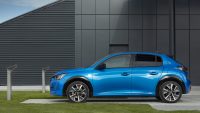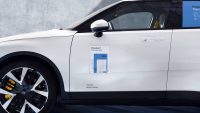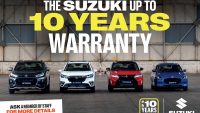THE government’s strategy to reduce vehicle emissions has been criticised by environmental campaigners but broadly welcomed by motoring groups.
Morten Thaysen, clean air campaigner at Greenpeace, described the target of banning new conventional petrol and diesel cars from 2040 as ‘weak by international standards’.
He said: ‘The car industry should be in the doghouse for its diesel pollution and stalling emissions reductions. But instead of being pulled up, it’s yet again being given a free pass from the government to carry on business as usual.’
Claire Haigh, chief executive of the Greener Journeys campaign, claimed ministers had ‘failed to take the necessary tough decisions’ to reduce the number of vehicles on the road.
She said: ‘Cars are the number one cause of roadside air pollution, which has reached illegal levels and is causing up to 50,000 early deaths per year. We cannot solve this crisis without reducing car use.’
The government’s Road to Zero strategy states that ‘cleaner diesel cars and vans can play an important part in reducing CO2 emissions’ during the transition to zero-emission vehicles.
Steve Gooding, director of the RAC Foundation, said he believed this ‘might not be a strong enough endorsement to halt plummeting sales’.
He added: ‘It’s important to remember that there are some 32 million cars registered in the UK. Nearly 13 million are diesel, just 155,000 or so are ultra-low emission.
‘Whether we like it or not, the Road to Zero is going to be a long one.’
Jim Holder, editorial director of What Car? magazine, told the Press Association that the decision not to ban hybrids showed the government was ‘starting to listen to the automotive industry’s concerns’.
He said: ‘The fear was that the government would force the uptake of full electric vehicles – something that the car-buying public have yet to show an interest in, with sales hovering around one per cent of all purchases.
‘Instead, this news gives the freedom for a more phased uptake of technologies, including part-electric hybrids, as well as the option for alternative power sources to emerge, such as hydrogen.’
Ian Plummer, director at Auto Trader, said: ‘The switch to electric will require a wholesale shift in public mindset, and for that we need a significant boost of supply side factors to build consumer confidence in electric and hybrid models.
‘The measures announced today are a step in the right direction, but given the slow rate of housebuilding in the UK the pace of change won’t be fast enough to drive the kind of revolution that the industry needs over the next few years. If we’re serious about achieving these targets in a way that can be driven by consumer demand we need to focus far more on upgrading our existing infrastructure, as well as just adjusting the specifications of new builds.
‘According to our research, upfront expense is actually the single biggest factor preventing greater uptake of electric. The extension of plug-in car grants to 2020 is good news, but government and industry need to work harder to ensure consumers fully understand the economic case for switching away from traditional fuels.
‘For alternatively fuelled vehicles (AFVs) to deliver ‘mainstream’ type volumes and become the norm, they need to have ‘mainstream’ type pricing. Until attractive AFVs are available at a similar cost to petrol or diesel models, consumer uptake is likely to remain limited to the most environmentally-minded early adopters and city dwellers feeling the negative regulatory pressures more than most.’
MORE: Hybrid cars escape 2040 ban on new petrol and diesel models
MORE: Tough regulations on their way to crack down on emissions cheats
MORE: Audi chief detained in Germany over diesel emissions scandal
On WorkshopMagazine.co.uk: Mechanics advertising emissions filter removal service given MOT testing bans



































